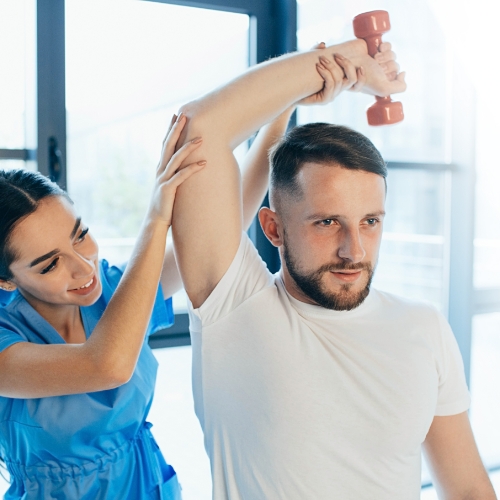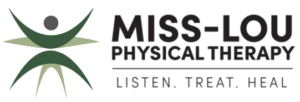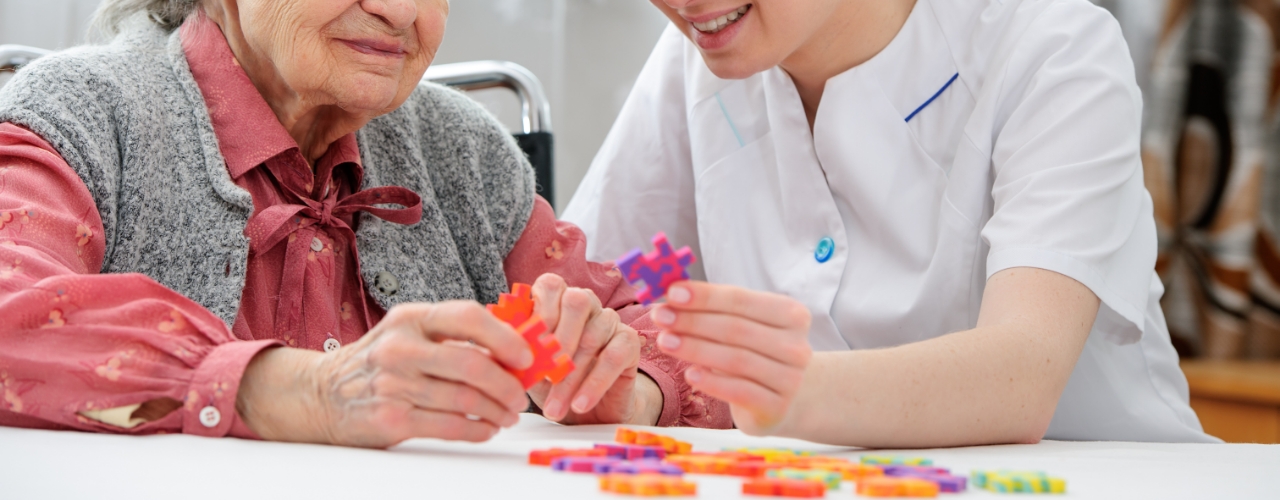
Regain Your Life With Occupational Therapy
Occupational therapy is a healthcare profession that focuses on helping individuals improve their ability to perform daily tasks. Our occupational therapists (OTs) at Miss-Lou Physical Therapy work with people with physical, cognitive, or sensory challenges that hinder their independence and participation in activities. The main goal of occupational therapy is to help you or a loved one achieve greater independence and improve your overall quality of life.
Our occupational therapists help our clients and other members learn about using adaptive equipment and techniques to improve their daily living skills and participate in their communities. In addition, providing optimal patient care through education is also a significant part of treatment when caregivers or families are involved.
We use an evidence-based approach to evaluate and treat our client’s needs. We will develop a customized treatment plan that includes exercises, adaptive equipment, and assistive technology to help you perform daily activities, such as dressing, cooking, and work-related tasks.
Conditions That Occupational Therapy Treats
Occupational therapists (OTs) are healthcare professionals who work with individuals of all ages to help them perform everyday activities, despite physical, developmental, or emotional challenges. They commonly treat conditions such as:
- Neurological disorders: Our treatment plans can help those with neurological disorders such as Parkinson’s disease, multiple sclerosis, and stroke restore their functions, including balance, coordination, and memory.
- Arthritis: Chronic joint inflammation can lead to mobility issues and pain. OTs teach pain management techniques, joint protection strategies, and adaptive methods for performing daily tasks.
- Traumatic Injuries: Injuries like fractures or burns can limit a person’s ability to perform daily tasks. OTs help individuals regain their skills and suggest modifications or adaptive equipment when necessary.
- Mental Health Disorders: Conditions like depression, anxiety, or post-traumatic stress disorder can affect daily life and well-being. OTs use therapeutic activities to help individuals manage their symptoms, enhance coping skills, and improve their participation in daily activities.
- Developmental Delays: Children who don’t meet the developmental milestones for their age group, like walking or talking, can greatly benefit from occupational therapy. OTs help these children develop these skills to reach their full potential.
- Autism Spectrum Disorder (ASD): Children with ASD often struggle with social interaction, communication, and repetitive behaviors. OTs help these children develop social, sensory, and fine motor skills.
The primary goal of an occupational therapist is to enable people to participate in everyday life activities. They achieve this by working with people and communities to enhance their ability to engage in the occupations they want to, need to, or are expected to do, or by modifying the occupation or the environment to support their occupational engagement better.
Call today to request an appointment with one of our occupational therapists!
Occupational Therapy Treatments
Our occupational therapists will perform a thorough exam to identify the issues impacting you or a loved one. This assessment will address your medical history, current symptoms, and other health factors that could be contributing to your condition.
OT treatments that we use may include:
Activity modifications
Our occupational therapists help patients learn new skills or improve existing ones with activity modifications. We will consider each patient’s abilities and determine which areas could be targeted for improvement.
Strength, flexibility, and coordination exercises
OT may include stretching and exercise to increase your strength, flexibility, and mobility. These techniques typically involve using resistance bands for strength or restoring balance and coordination.
Adaptive equipment
Adaptive equipment is often necessary for treatment, which includes wheelchairs, walkers, or other tools to help clients perform tasks more independently. Some common types of adaptive equipment used by our OTs include:
Dressing aids
Button hooks, long-handled shoe horns, dressing sticks, sock aids, and elastic shoelaces to promote independent dressing.
Eating utensils
Weighted utensils, plate guards, non-slip placemats, and adapted cups to assist with feeding and meal preparation.
Writing aids
Pen grips, weighted pens, and writing splints to improve handwriting and motor control.
Bathing and toileting aids
Shower chairs, grab bars, raised toilet seats, and long-handled sponges to enhance safety and independence in the bathroom.
Reachers and grabbers
Extending tools to help individuals lift items without bending or stretching.
Custom splints and orthotics
These devices are used to provide extra support and allow for proper alignment. Custom splints and orthotics are intended to restore functions in the affected area. Examples include ankle braces, finger splints, and spinal braces.
Ergonomics
Ergonomics helps patients modify their workplace while managing their condition and accompanying symptoms. An OT will assess the different products and systems that need to be rearranged to fit the patient using them. The purpose is to reduce the risk of injury by improving the workspace environment.
Occupational therapy can teach you how to participate in everyday tasks and the activities you enjoy. Our rehabilitation programs at Miss-Lou Physical Therapy will help you achieve goals to develop, improve, and maintain skills required for daily living and working.
Your Next Steps…
Request An Appointment
Receive A Custom Treatment Plan
Work Hard and Progress In Your Recovery
Recover & Enjoy Life Pain-Free!

